HOMILY FOR MASS OF THANKSGIVING IN HONOUR OF PROFESSOR GREG CRAVEN
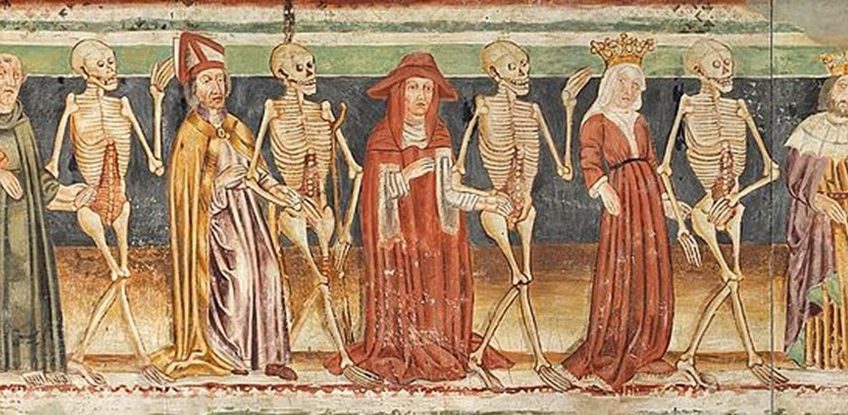
Shrine of St Mary of the Cross MacKillop, North Sydney. Wednesday of the 1st Week of Advent Year

Memento Mori – remember you must die.
This idea of framing and structuring our present by looking to the end is an ancient one. The ancient Greek philosopher Democritus prepared himself by long solitudes and frequenting tombs.[1] In the PhaedoPlato suggested philosophy (with which he included theology) is ultimately “about nothing else but dying and being dead”.[2] Epicletus and Seneca directed their Stoic followers to meditate on death even as they kissed their loved ones.[3] Tertullian reported that during a Roman general’s triumphal procession, a slave would stand behind him whispering ‘Respice post te; hominem te memento’ – Look beyond yourself [to your death] and remember you are [only] a man. There was a similar wisdom in many other cultures and religions. In our first reading today (Isa 25:6-10) we saw how the Jews would sometimes personify Death as the enemy of humankind or name him as an angel, hunter or tormentor, while looking forward to that day when Death himself will die.[4]

But Christians were especially encouraged to reflect upon the Last Things – not ‘death and taxes’ but Death, Judgment, Heaven and Hell. We contemplate them at funerals, of course, and in the remembrance of the dead in every Mass; at missions, spiritual exercises and retreats; on All Hallows Eve when some imagine the dead walk, and in the following months of November and Advent, when our Scriptures focus particular attention upon the end.
Christian art and artefact are full of reminders of death: the cross, of course, above all; holy relics in churches; catacombs and funerary monuments; skulls for the desk; frescoes of the Last Judgment; tombstones with skeletons admonishing the living. Some monks slept in coffins and there’s a Capuchin crypt in Rome with chapels tiled with bones and skeletons set up eating meals and dancing… Skeletons have long struck the hour on public clocks, and amongst her memento mori jewellery Mary Queen of Scots had a silver skull-shaped watch embellished with lines of Horace, “Pale death knocks with the same tempo upon the huts of the poor and the towers of Kings.”
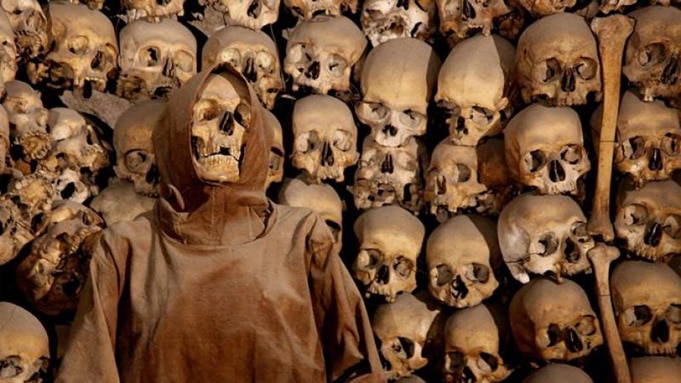
The expression Memento Mori is especially common in that ‘Little Lent’ that is Advent when we look to the end of time and especially in the ‘Long Lent’ that looks to the Lord’s death and begins with an anointing with ashes and a reminder that we are made of dust and to dust we will return…
A rather gloomy opening for a retirement celebration, you might say – even for a collector of olde moulde religious artefacts like Professor Craven! But then, occasions like these always risk sounding rather like eulogies… Just as we rightly frame a life with the prospect of its end, so the prospect of writing that final report to the Senate and retiring should shape our work. We each have only a certain patch of time with which to do our best, leave our mark and prepare for our departure from the stage. Our present Advent season makes that point repeatedly, as it points to the end times, when all the wealth and honours of this life will count for nought, when we will stand as naked as the day we were born before the Judge of the Living and the Dead, and be clothed only in the faith and virtues we cultivated through our good works in this life, and our relationships with God and our fellows.
Today’s prophetic text and psalm dream of a day when there is no more hunger and thirst because God will feed us at His banquet table (Isa 25:6-10; Ps 22(23)). In our Gospel God does just that. Jesus gathers the faithful, heals them of sin and sickness, proclaims God’s word to them, has them sit down in ‘parish’ groups, and then takes, breaks and transforms the elements (Mt 15:29-37). Paired with the wedd-ing feast of Cana (Jn 2:1-12), when enough wine was produced to sate a city, today’s multiplication of loaves is of end-time proportions, and together the two miracles point to the Eucharist where there is more grace abounding than humanity can appreciate.
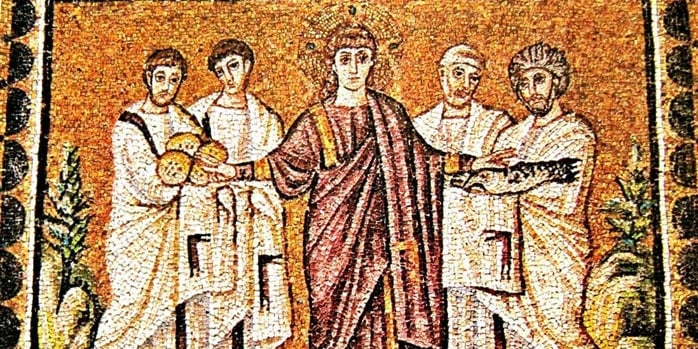
No ordinary food satisfies the whole human person or keeps us from hunger and death. But in our premonition of the Eucharist we join the ancients in framing a present in which all flesh perishes like grass with that future when all flesh will be gloriously restored in the resurrection of the dead. In Advent we look forward to Christmas, of course, but also to that second Christmas when Christ returns to us and ours to Him, “joy to the world” even more truly than the first Christmas. In the meantime we do our best to dress ourselves in faith and virtue and goodness.
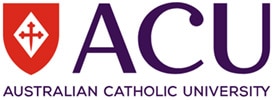
So we come to the conclusion, not of a life but of a life’s work. With an eschatological urgency our Vice Chancellor seems to have fit many lives into one, as a family man, lay Churchman, lawyer, civil servant, public commentator and academic leader. Today, on behalf of the Church and the University, I thank Anne and the children for surrendering Greg to such intense and varied service. It has included being on many Church bodies and standing up for the Church in the public square. In the report of Greg’s unofficial exit interview which the University’s Senate will receive tomorrow, 31 areas of progress in Catholic identity and mission are identified. For all of which and much else besides the Holy Father appointed Greg as a Knight Grand Cross of the Order of St Gregory, the Church’s highest honour for a lay person, with which I was pleased to surprise him at an end-of-year ACU function in 2016. It was a rare occasion of Greg being lost for words!
We could list off Greg’s accomplishments as a lawyer, advisor, board member, public wit, and leader in tertiary education. But it suffices to say that the crown of his career has been his time as Vice Chancellor and President of the University, where he has been a truly visionary leader. Thank you, Greg, for your extra-ordinary contribution to ACU and beyond. God bless the next chapter of your hagiography, whatever it will include. Vale Vice Chancellor! Deo gratias!
INTRODUCTION TO MASS OF THANKSGIVING IN HONOUR OF PROFESSOR GREG CRAVEN Shrine of St Mary of the Cross MacKillop, North Sydney
Wednesday of the 1st Week of Advent Year
Welcome to the Shrine of St Mary MacKillop for this Mass of Thanksgiving as we farewell Professor Greg Craven, after serving the Australian Catholic University as its Vice-Chancellor and President for over a decade.
I acknowledge the presence today of Greg’s beloved wife Anne, his children Catherine, Tom and Patrick, his first grandchild Augustus, and other relatives, friends and colleagues.
I also recognise Her Excellency Hon. Margaret Beazley AC QC, Governor of New South Wales; Hon. Jacinta Collins, Executive Director of the National Catholic Education Commission; Sr Monica Cavanagh RSJ, congregational leader of our hosts, the Sisters of St Joseph; and other distinguished guests.
From the University I salute: the Acting Chancellor, Mr Julien O’Connell AO; representing his predecessor, Hon. John Fahey, his widow Colleen, with Amber and Campbell; his predecessor, Hon. General Sir Peter Cosgrove AK CVO MC, with Lady Lynne; and his predecessor, Br Julian McDonald CFC AO. I also greet the University’s ‘founding Principal’, Br Ambrose Payne FSC AO; its first Vice Chancellor, Professor Emeritus Peter Drake; and Greg’s successor Professor Zlatko Skrbis, with Marta; several Senators, Deputy Vice Chancellors, other Senior Executives and Professors of the University.
I acknowledge concelebrating with me the Vicar General of Sydney, Very Rev. Gerry Gleeson; the Vice-President of the University, Rev. Anthony Casamento CSMA; and Rev. Dr. Jamie Calder SJ.
To everyone present, a very warm welcome!
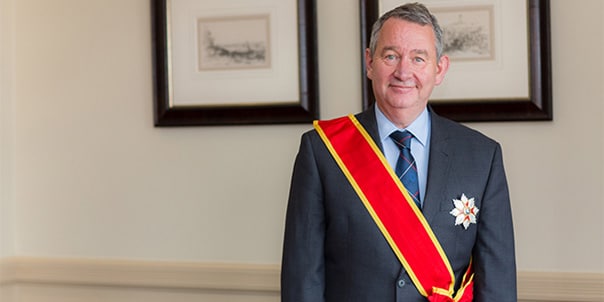
[1] Diogenes Laërtius, Lives of the Eminent Philosophers (C3rd AD), Bk IX, ch. 7, §38.
[2] Plato Phaedo, 64a4.
[3] Seneca, Moral Letters to Lucilius; Epicletus, Discourses III, 24. See Peter Jones, Memento Mori: What the Romans can tell us about Old Age and Death ().
[4] 2Sam 22:5-6; 24:16; 2Kings 19:35; 1Chr 21:15,30; Tob 3:4; Job 18:13; 28:22; Ps 18:5; 49:14; 116:3; Prov 8:36; Wis 1:16; Sir 41:1-3; Isa 25:8,15,18; 37:36; 38:18; Dan 3:88; Hos 13:14; Hab 2:5; cf. Rom 6:9; 1Cor 15:26,54-56; Rev 1:18; 6:8; 20:13-14; 21:4.

